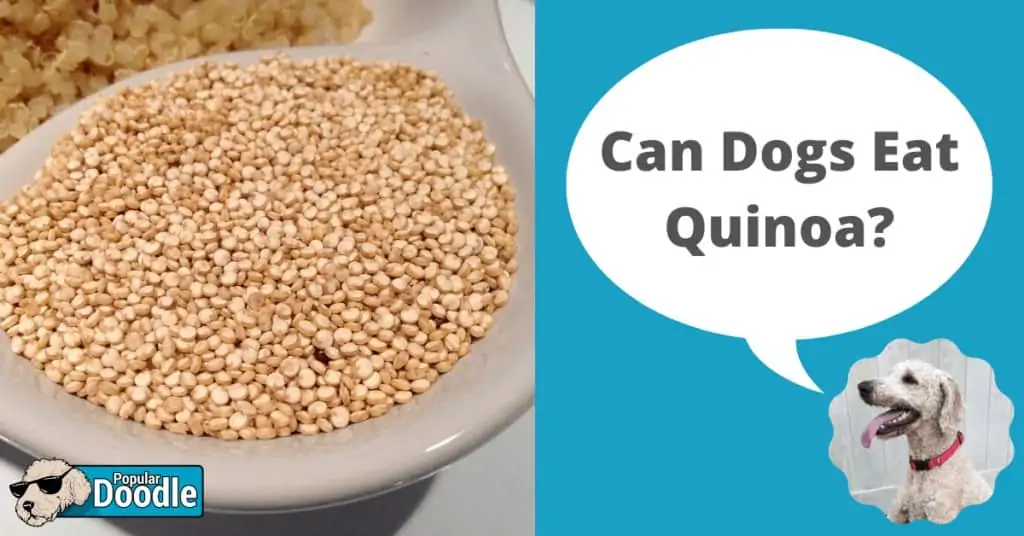
The first cracker originated in 1792 when John Pearson was trying to make a biscuit that would last longer than the traditional sailor’s biscuit. Since then, crackers have evolved so much! There is an infinite amount of textures, shapes, and flavors that can keep everyone happy! They’re such a common snack for humans, but can dogs eat crackers? Or are crackers bad for dogs? Let’s find out!
Can Dogs Eat Crackers? (The Short Answer)
It’s difficult to say with confidence whether dogs can eat crackers, as there are such a large variety. A general rule that includes most, but not all crackers, is that small amounts of crackers won’t harm your dog, but they’re also not recommended as a great treat option because they lack any health benefits. There usually isn’t a reason to panic if your dog snatched a cracker or two, however there are a ton of better options to give them instead.
It’s important to remember, that even with the best of intentions, accidents happen and dogs can easily eat things they shouldn’t. Unfortunately, even if those accidents aren’t fatal, they can result in huge, unexpected veterinary expenses. That’s why we recommend all responsible dog owners get a free, online pet insurance quote from Healthy Paws.
Are Crackers Good For Dogs?
Crackers aren’t necessarily “good” for dogs, but they’re also not classified as a food that you should not ever give your dog under any circumstances. For humans, crackers are more or less a snack to munch on in between meals. They don’t provide any real health benefits, and often times crackers are eaten in addition to other foods like crackers with hummus, crackers with cheese, etc.
Are Crackers Bad for Dogs?
We’ve already answered the question, “can dogs eat crackers?” Now, let’s learn about the dangers of feeding your dog this food! Are crackers bad for dogs?
Many experts are indifferent about giving dogs crackers because there is nothing that stands out about them in terms of health benefits. There are a few reasons why crackers aren’t the healthiest option for your dog.
The biggest issue with most varieties of crackers is the salt content. A lot of crackers have salt added to give them more flavor. Dogs don’t need much sodium in their diet at all, so high salt snacks aren’t recommended.
Depending on the type of cracker, there can be a significant amount of calories and carbohydrates for the amount being given to your dog. When deciding on new snack options for your pup, it’s best to consider your dog’s health and pick treats that are lower in calories and fat.
Another potential problem arises if your dog has an allergy or an intolerance to gluten. If your dog does have this problem, you should never give them crackers as they can really distort their digestive tract and cause them pretty serious discomfort, vomiting, and diarrhea.
Other Varieties & Related Foods:
Can Dogs Eat Graham Crackers?
Graham crackers are not recommended as a great treat option for dogs, but in small quantities they won’t hurt your pup. For more information, take a look at our article, “Can Dogs Have Graham Crackers?”
Can Dogs Eat Ritz Crackers?
Ritz are a household favorite, but they might not be the best option for your pup. Like most crackers, a cracker that fell on the floor will not pose a threat to your dog, but this isn’t the best option. Ritz crackers specifically contain added salt, sugar, and high fructose corn syrup, all of which are detrimental to your dog’s longterm health.
Can Dogs Eat Saltine Crackers?
Saltine crackers aren’t the best option to serve your dog either. In just one large saltine cracker, there is 102mg of salt, which is far more than most dogs need on a daily basis. Too much salt can have serious consequences for your pet, so it may be best to avoid this one.
Can Dogs Eat Animal Crackers?
Yes, dogs can eat animal crackers. Of course, these are best in moderation. Compared to many other types of crackers, these are low in salt, calories, and fat. Keep away from the varieties of animal crackers that are coated with chocolate or other substances that could be dangerous to your pup.
Are Goldfish Crackers Safe for Your Pup?
A few Goldfish will not harm your dog when given in moderation. However, they’re not the healthiest option for dogs. They also have onion powder listed as an ingredient. Onions and onion powder can be toxic to dogs, but the small amount that is in a singular gold fish is unlikely to cause serious problems. Goldfish are also coated in salt, and in one serving there is 250mg of sodium. While you wouldn’t give your dog an entire human serving of Goldfish, the salt can add up quickly, and before an alarmingly high number.
Are Oyster Crackers Safe for Your Pup?
Oyster crackers should generally be avoided, although a few should not cause any serious problems. Oyster crackers are made of mainly enriched flour and added salt and sugar. All of these ingredients should only be served in moderation. Oyster crackers are small in size so a few should be okay, but they’re not the healthiest option and should typically be avoided.
Are Eat Cheese Crackers Safe for Your Pup?
In moderation, a few cheese crackers are unlikely to cause problems. Like most crackers, they’re not a recommended choice of treats because there are so many other treats that are delicious and nutritious. For more details check out our articles on Cheez Its and Cheetos.
Can Dogs Eat Wheat Thins?
Assuming your dog does not have any wheat allergies, 1-2 wheat thins should not be a problem. However, wheat thins are high in salt, fat, and sugar, in relation to other dog treats. For these reasons, they should only be given for special occasions, as too much can lead to long term health problems for dogs.
Can Dogs Eat Triscuits?
Triscuits are a unique cracker because of the multitude of different flavors available. Some are worse than others. The spicier varieties may cause your pup to experience an upset stomach. Some other flavors contain ingredients that are potentially toxic to dogs. An original flavored Triscuit shouldn’t cause many problems as they only contain whole grain wheat, vegetable oil, and sea salt. With Triscuits, you must remain vigilant of the ingredients. Regardless, these should not be a regular substitute for dog treats and shouldn’t be given too often.
Related: Should Goldendoodles Eat Grain Free? (Veterinarian Advice)
Can Dogs Eat Club Crackers?
If you dropped a club cracker on the floor and your pup got to it before you did, don’t panic. If one is eaten, it shouldn’t cause any serious problems, especially if you have a larger dog. However, the average club cracker contains over 30mg of sodium! Dogs require significantly less sodium than humans and too much can cause serious problems. These aren’t recommended to give to your dog, but if your dog gets ahold of one, they should be okay. If your dog eats more than a few, you should contact a veterinarian for advice.
In Conclusion: Can Dogs Eat Crackers?
Overall, crackers probably aren’t the best option to give to your dog. That being said, in most cases, one or two crackers given in moderation should not cause any problems for your dog. The main issues are the lack of any nutritional benefits, the salt content, and the caloric content. Additionally, if your dog has a gluten intolerance or allergy, it’s best to avoid giving any crackers to them, as it will cause serious gastrointestinal distress. Crackers have an abundance of varieties, so be sure to look more closely at the ingredients and salt content in them to avoid giving your dog a potentially harmful substance.
Want to Learn More?
Check out these related articles from our “Read Before You Feed” series for more advice on safe foods for dogs!
- Can Dogs Eat Brussels Sprouts?
- Is Cereal Good for Dogs?
- Can Dogs Eat Chestnuts?
- Are Grits Bad for Dogs?
- Can Dogs Eat Pretzels?
Disclaimer: We are not veterinarians and this article should not be taken as medical or veterinary advice. If you have any questions about your pet’s health or dietary needs, please contact your local veterinarian.








